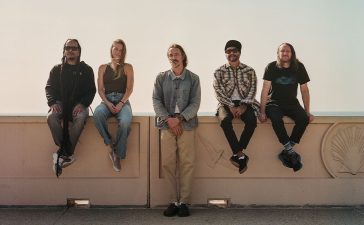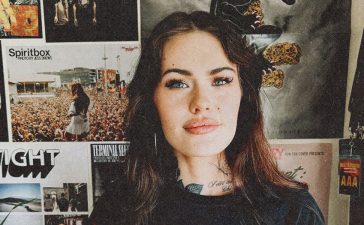When Tori Forsyth began to gain traction as a figure in Australian music, it wasn’t for her rockstar prowess. Forsyth made a name in the country scene, or as the Aussie media dubbed it, “alt-country.” Then, everything changed: Forsyth discovered Nirvana.
“I basically had a surgery”, Forsyth explained, “and I was laid up in bed for a month. I fell down a Nirvana rabbit hole.” It wasn’t the first time she had heard them – it’s hard to avoid Nirvana’s greatest hits if you have ears – but this time around, she didn’t consume ‘Smells Like Teen Spirit’ and ‘Lithium’ and just let them go. “I feel like everything’s come full circle”, she adds, recounting that her first singing teacher taught her Nirvana and Smashing Pumpkins songs to her nonchalance. This time around, she changed her mind, finally picking up her guitar and learning bar chords. “When I learned how to play the music, that’s when I was like, ‘This is so much fun. This is like no other feeling you get from anything else, when you play that powerful music.'”
It’s that feeling that Forsyth ended up falling in love with, but the path to that realisation wasn’t paved with sunshine and rainbows. Forsyth’s surgery was for endometriosis, a condition that affects one in ten Australian women. Taking a beat from touring offered time for reflection, not only on her future but on the professional relationships that she had recently severed. “I feel like it did have something to do with how I was feeling and needing to make changes after the surgery and having to find a new path with what I wanted to do, with how I wanted to exist in the world…I was feeling, in a weird way, motivated to just get rid of a bunch of shitty people and to go forward feeling good about music again.”
Her upcoming album with deal with that process, as well as her experiences with technology and self-worth in the 21st century. She describes our current climate online as dominated by “instantaneous turnover”, impacting an individual’s relationship with how they show up on social media and the quality of what they put out into the world. “It’s not all about me”, she cautions. On this record, Forsyth retreats from writing “particular stories” in favour of sharing her “outlooks on how the world is” from her perspective. “Just issues through being a woman I guess, and trying to navigate the world as a woman, which sounds so cliché. But it really got to a point for me where I was like, ‘wow, this is an actual thing that we have to deal with. And it’s hard sometimes.'”
“If I have kids or if I have a daughter, some of the things that I’ve been through…I would absolutely just cry if I had a kid who had to go through that too. ”
Ignorance is bliss, and it is easier to pretend that we live in a perfect world than to acknowledge that inequality is still rife within our society. Forsyth describes her own experiences – that as women, we can all relate to – of realising that inappropriate behaviour leaves its mark in different ways, and that it’s not something that we always instantly recognise. “Something will happen”, Forsyth tells, “and then I will, maybe a week later or twenty minutes after it’s happened, go ‘Hang on a minute. That’s not normal.’ And I think that’s the most messed up thing – that we don’t often realise at the time that it’s happening and it is really inappropriate.”
While we have seen steps towards improving the treatment of women, we do have further to go, which Forsyth agrees with. “I need to be speaking about this”, she affirms. “If I have kids or if I have a daughter, some of the things that I’ve been through…I would absolutely just cry if I had a kid who had to go through that too.”
Forsyth has been on a journey of healing since reaching that level of comprehension of her experiences, and has tagged in some incredible women to share their stories alongside her. On Tuesday nights, she hosts an Instagram Live session to “not only put a spotlight” on people that she’s been following, “but to talk about how art is really healing and self-evaluation is really important.” Her guests have included author Tiarn Florence, who talked to the subject of using poetry as therapy, and medium Natalie Moon, who discussed living your authentic truth, healing and transformation.
With so much out there for us to immerse ourselves in, be it art or ideology, it’s hard to filter what we should be attributing meaning to and what we should be ignoring. In previous eras, there have been works that define periods of time, and resonate universally. With the current quantity of what is being released, there are moments that are surely going to be overlooked by history, art that could heal that gets lost in a pile of similar works. “I really hope that we get to the point of needing it again as a collective”, Forsyth asserts, especially in reference to the iconic and impacting poetry of the past. “What’s going to be the next universal moment of ‘holy shit! This is genius?'” For now, all we can do is create and see what happens.









